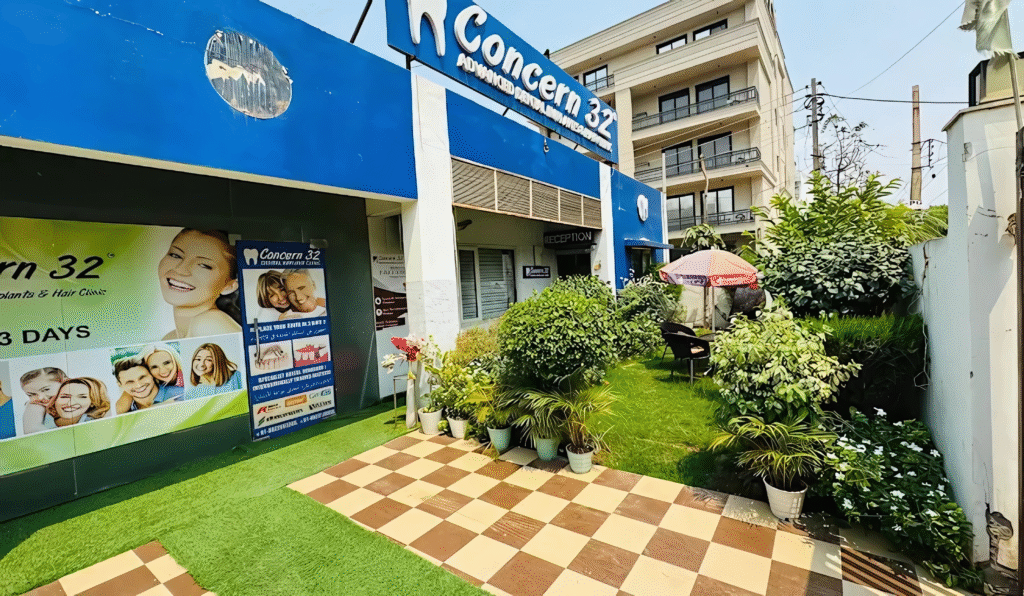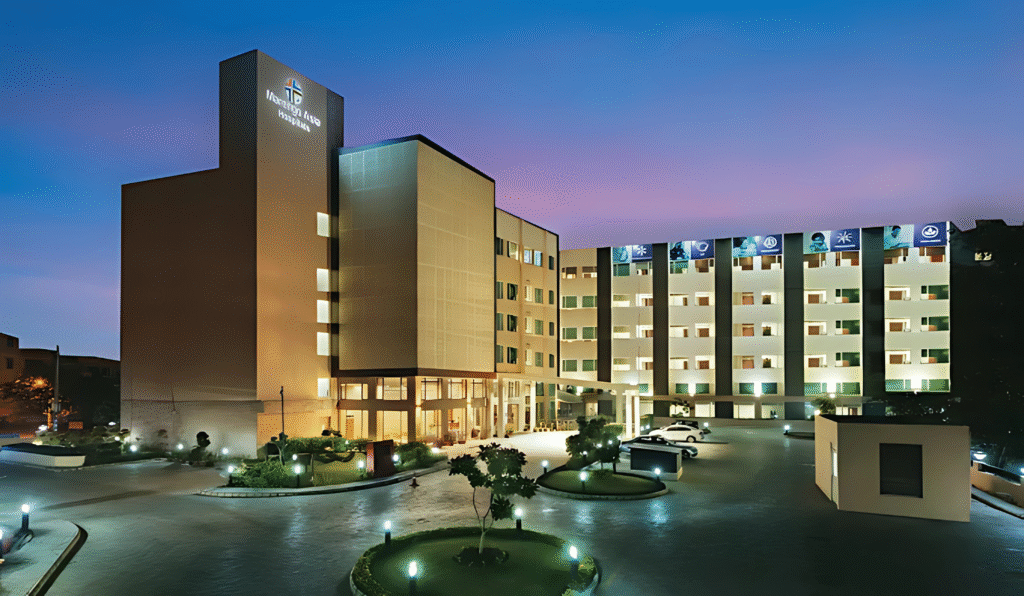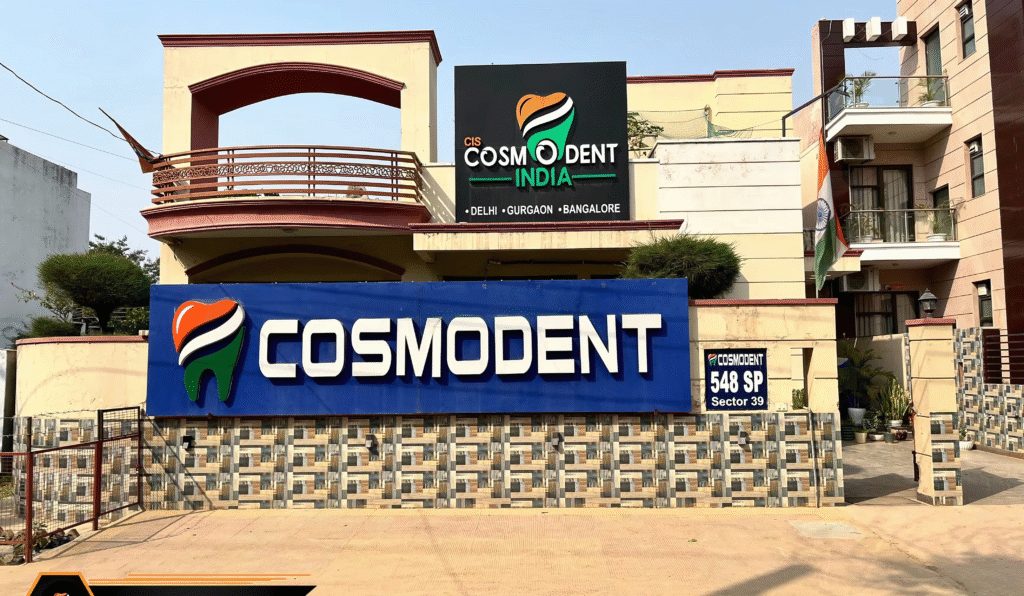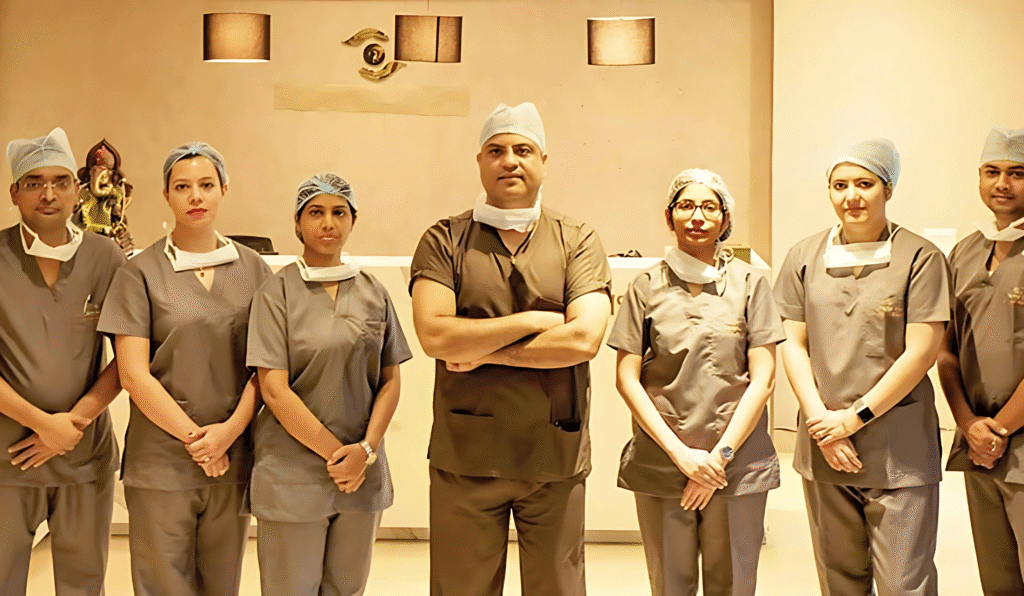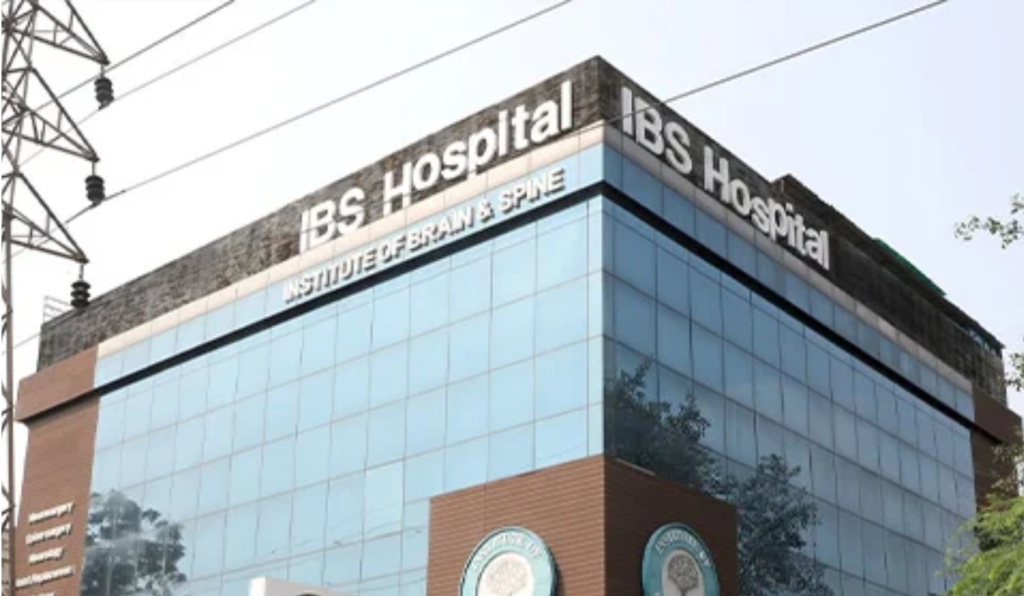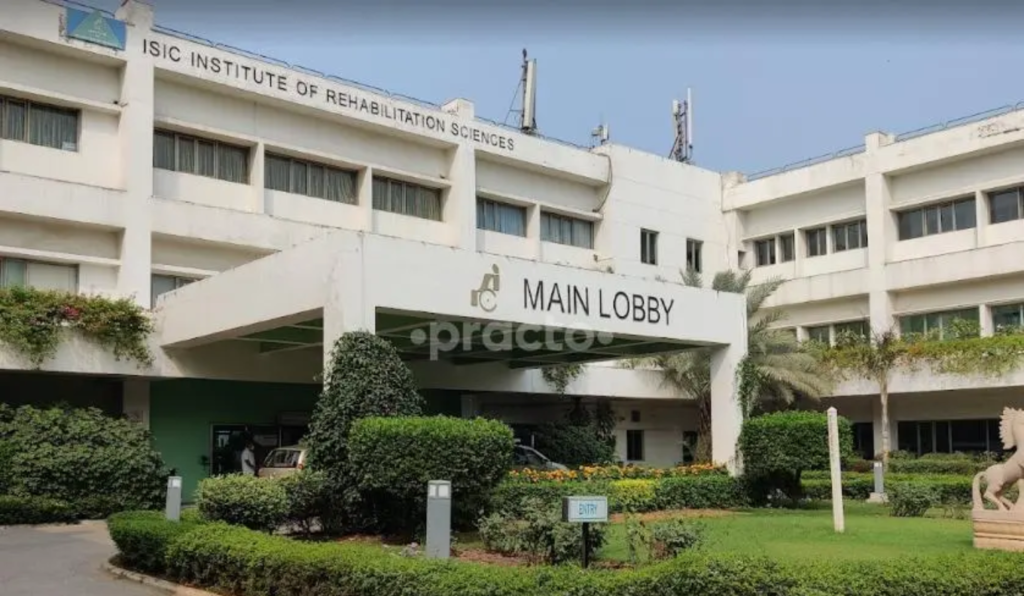Colorectal Cancer Treatment Cost in India

What is Colorectal Cancer?
Colorectal cancer refers to cancer that begins in the colon or rectum, which are parts of the large intestine and digestive system. It typically starts as small, noncancerous growths called polyps on the inner lining of the colon or rectum, which can develop into cancer over time if left untreated.
Colorectal cancer includes two major subtypes:
Colon Cancer: Originates in the colon (the longest part of the large intestine). It is often detected through routine screening like colonoscopy and tends to grow slowly, offering a high chance of cure if caught early.
Rectal Cancer: Begins in the rectum (the last several inches of the large intestine). Though it shares similarities with colon cancer, its location requires different surgical and therapeutic approaches.
Colorectal cancer is one of the most preventable and treatable forms of cancer when detected early. Lifestyle changes, regular screenings, and awareness play a key role in its prevention and management.
How Does Colorectal Cancer Develop?
Colorectal cancer typically begins in the inner lining of the colon or rectum as small, non-cancerous growths called polyps. Over time, some polyps can undergo genetic changes that make them cancerous.
The development process includes:
Polyp Formation: Abnormal cell growth leads to the formation of benign polyps.
Genetic Alterations: DNA changes within polyp cells trigger cancerous transformation.
Tumor Invasion: Cancer grows deeper into the colon/rectal wall and may involve nearby lymph nodes.
Distant Spread: Advanced colorectal cancer can metastasize to organs such as the liver or lungs.
Colon Cancer and Rectal Cancer share similar development patterns, but rectal cancer’s location in the pelvis can pose additional treatment challenges due to nearby organs and blood vessels.
Causes and Risk Factors
Colorectal cancer typically results from a combination of genetic predisposition and lifestyle choices:
Age: Most cases occur in people over 50, although younger individuals are increasingly affected.
Diet: High consumption of red or processed meat and low fiber intake contributes significantly.
Personal or family history: A history of colorectal cancer or polyps increases risk, as does a family history of the disease.
Inflammatory bowel diseases: Conditions like Crohn’s disease or ulcerative colitis elevate long-term risk.
Sedentary lifestyle and obesity: Physical inactivity and being overweight are strongly associated.
Smoking and alcohol: Both are established risk factors for colorectal cancer.
Genetic syndromes: Inherited conditions like Lynch syndrome or familial adenomatous polyposis (FAP).
Unlike breast or lung cancers, colorectal cancers often begin as non-cancerous polyps that gradually develop into malignant tumors over time.
Symptoms
Colorectal cancer symptoms often begin subtly and may be mistaken for less serious digestive issues. As the cancer grows, the signs become more apparent.
Changes in bowel habits, such as diarrhea, constipation, or stool narrowing that lasts for more than a few days
Rectal bleeding or blood in the stool (bright red or dark)
Persistent abdominal discomfort, including cramps, gas, or pain
A feeling of incomplete bowel emptying
Unexplained weight loss
Fatigue and weakness
Iron-deficiency anemia, often due to chronic blood loss
Distinction by location:
Colon Cancer: More likely to present with altered stool shape, constipation, or anemia.
Rectal Cancer: May lead to more noticeable rectal bleeding and urgency in bowel movements.
Types of Colorectal Cancer
Colorectal cancer includes both colon cancer and rectal cancer, based on the origin point in the large intestine. The cancers can behave differently and may require varied surgical approaches, but are generally treated under the same umbrella.
Starts in the colon, the longest part of the large intestine.
Often begins as benign polyps that develop into cancer over time.
May be located in different parts of the colon (ascending, transverse, descending, sigmoid).
Begins in the last few inches of the large intestine (the rectum).
Because of the confined space in the pelvic area, treatment requires careful planning to preserve bowel and bladder function.
Most colorectal cancers are adenocarcinomas.
Arise from the mucus-producing glands lining the colon or rectum.
Mucinous Carcinoma: Contains mucus and behaves differently than standard adenocarcinoma.
Signet Ring Cell Carcinoma: Rare and aggressive, usually detected at a later stage.
Neuroendocrine Tumors: Slow-growing but may produce hormones and require specialized care.
Which Type of Colorectal Cancer is Most Dangerous?
Metastatic Colorectal Cancer, where the cancer spreads beyond the colon or rectum to other organs like the liver or lungs, is the most dangerous. It’s harder to treat and often requires a combination of therapies to control.
Why Choose India for Colorectal Cancer Treatment?
India’s reputation in colorectal cancer care continues to grow, driven by its expertise in advanced surgical techniques, precision oncology, and holistic patient support. Whether for colon or rectal cancer, Indian hospitals offer a multidisciplinary approach involving skilled oncologists, colorectal surgeons, gastroenterologists, and nutritionists. With the availability of modern technologies like robotic surgery and personalized chemoradiation, India ensures high-quality treatment outcomes at significantly lower costs compared to many Western countries.
Top hospitals in India have dedicated colorectal cancer units with experienced colorectal surgeons, medical oncologists, and gastroenterologists. These teams specialize in laparoscopic and robotic surgeries for colon and rectal cancers, with high success and low recurrence rates.
For rectal cancer, Indian specialists utilize neoadjuvant chemoradiation and precise surgical techniques to avoid permanent colostomies when possible. This enhances post-treatment quality of life without compromising cancer control.
Many Indian hospitals provide genetic testing for patients with hereditary colorectal cancer (like Lynch syndrome), along with dietary counseling, ostomy care, and long-term survivorship planning for holistic care.
India offers cancer care that is 60–80% more affordable than in countries like the US or UK, without sacrificing quality. Internationally accredited hospitals maintain high standards, using the same FDA-approved drugs, surgical implants, and protocols used in the West.
In India, you can begin cancer treatment quickly. Diagnostic scans, biopsies, and tumor board reviews are completed within days—unlike in many countries where long waiting periods can delay care. Fast treatment initiation is crucial for aggressive cancers.
India provides an all-inclusive, patient-friendly ecosystem:
✔ Dedicated international patient coordinators
✔ Medical visa assistance for seamless travel
✔ Budget-friendly accommodation & transportation
✔ Multilingual staff including English-speaking doctors
This ensures a comfortable and stress-free experience for international patients during their treatment journey.
Different Types of Treatments for Colorectal Cancer
Colorectal cancer, which includes both colon and rectal cancer, is treated with therapies tailored to the tumor’s location, stage, and whether it has spread. Early detection allows for curative treatment, while advanced cases may require a combination of medical and surgical interventions.
How It Works:
Uses cytotoxic drugs to kill cancer cells or slow their growth, especially after surgical removal.
Disrupts cell division
Circulates through bloodstream
Can be combined with targeted drugs
When It’s Used:
After surgery to prevent recurrence
For advanced or metastatic colorectal cancer
In rectal cancer before radiation/surgery
Benefits:
Improves survival
Can shrink tumors for surgery
Reduces recurrence risk
How It Works:
Targets specific proteins like VEGF or EGFR involved in cancer growth and spread.
Anti-angiogenic or anti-EGFR activity
Used in combination with chemo
Personalized to genetic profile
When It’s Used:
For metastatic colorectal cancer
In patients with KRAS wild-type tumors
When conventional chemo alone isn’t enough
Benefits:
Higher response rates
Slower disease progression
Improved survival in advanced stages
How It Works:
Stimulates the body’s own immune system to attack cancer cells, especially in tumors with MSI-H or dMMR mutations.
Blocks immune checkpoints like PD-1
Allows T-cells to fight cancer
Long-lasting immune response
When It’s Used:
In metastatic MSI-H/dMMR colorectal cancer
When other treatments fail
For durable disease control
Benefits:
Durable response
Minimal toxicity
Hope for hard-to-treat cases
How It Works:
Uses focused radiation to destroy cancer cells, often used for rectal tumors.
Reduces tumor size
Damages cancer cell DNA
External or internal (brachytherapy)
When It’s Used:
In locally advanced rectal cancer
Before or after surgery
For palliation in metastatic disease
Benefits:
Preserves bowel function
Improves surgical outcomes
Eases symptoms like bleeding or pain
How It Works:
Includes procedures like laparoscopic ablation or embolization to target small tumors directly.
Uses scopes or probes
Reduces recovery time
Precise targeting of localized disease
When It’s Used:
In liver metastases
For local tumor control
As an option for non-surgical patients
Benefits:
Faster recovery
Less pain and scarring
Effective for select cases
Different Procedures for Colorectal Cancer
Surgery plays a central role in colorectal cancer treatment. Depending on tumor location, several procedures are used for tumor removal, bowel restoration, and symptom management. Innovations like robotic surgery have improved outcomes significantly.
How It Works:
A colectomy involves removing all or part of the colon containing the cancer, followed by reconnection of the healthy segments.
When It’s Used:
For colon cancer or large precancerous polyps
When tumors obstruct the bowel
In cases of perforation or bleeding
Benefits:
Curative in early stages
Removes primary tumor
Allows pathological staging
How It Works:
A stoma (opening) is created in the abdominal wall to divert stool into a colostomy bag after part of the colon or rectum is removed.
When It’s Used:
When reconnection is not possible
In low rectal cancers
Temporarily after surgery
Benefits:
Prevents complications
Can be reversed in some cases
Improves quality of life in obstruction
How It Works:
An endoscopic technique to remove early-stage tumors or precancerous lesions from the lining of the colon.
When It’s Used:
In large polyps or early colorectal cancers
For patients unfit for surgery
When cancer hasn’t invaded deeper layers
Benefits:
Non-surgical and outpatient
No abdominal incisions
Excellent recovery rate
How It Works:
Uses robotic arms for precision removal of colon or rectal tumors, offering better dexterity and 3D visualization.
When It’s Used:
For low rectal tumors
In complex pelvic surgeries
For preserving nerve and bowel function
Benefits:
Lower blood loss
Shorter hospital stay
More precise dissection
How It Works:
A minimally invasive surgery using small incisions and a camera to perform colectomy or tumor excision.
When It’s Used:
In early to moderate-stage colon cancer
For right or left-sided colectomy
For faster recovery cases
Benefits:
Quicker healing
Less pain post-surgery
Reduced scarring
Other Advanced Procedures and Costs for Colorectal Cancer
How It Works:
TAMIS allows surgeons to remove rectal tumors through the anal canal using specialized minimally invasive instruments.
When It’s Used:
In early-stage rectal cancer
For large rectal polyps
To avoid abdominal surgery
Benefits:
No external incisions
Shorter hospital stay
Preserves normal bowel function
Cost in India: $3,000 – $5,000
How It Works:
HIPEC is a procedure where heated chemotherapy is circulated in the abdominal cavity after surgical removal of visible tumors.
When It’s Used:
For colorectal cancer that has spread within the abdomen
After cytoreductive surgery
In advanced or recurrent cases
Benefits:
Targets microscopic cancer cells
Improves survival in select patients
Limits systemic side effects
Cost in India: $6,000 – $10,000
How It Works:
A complex surgery that removes the rectum and surrounding organs affected by cancer, often done when the disease has recurred or spread locally.
When It’s Used:
For advanced or recurrent colorectal cancer
When other treatments have failed
In locally invasive tumors
Benefits:
May offer curative potential
Removes all visible tumor burden
Can improve survival in selected patients
Cost in India: $7,000 – $12,000
How It Works:
A high-intensity laser beam is used to shrink or destroy tumors, particularly in the colon or rectum.
When It’s Used:
For relieving blockage or bleeding
In palliative settings
For early-stage superficial tumors
Benefits:
Minimally invasive
Effective for symptom relief
Can be done as outpatient
Cost in India: $2,000 – $3,500
Best Doctors for Prostate Cancer Treatment in India
Best Hospitals for Prostate Cancer Treatment in India
Med Travel India Offerings
How does Med Travel India help you?
Med Travel India is dedicated to assisting international patients in accessing high-quality prostate cancer treatment in India. From selecting the best hospitals to providing logistical support, we ensure a seamless medical journey. Our team works closely with top oncologists and healthcare facilities to offer personalized treatment plans tailored to each patient’s condition.
We take care of every aspect of medical travel, allowing patients to focus solely on their recovery. Below is a list of services provided by our company:
Services offered by Med Travel India

Seamless Planning for Your Medical Journey
Before you even arrive, we take care of all the groundwork. From connecting you with top specialists to ensuring all necessary medical evaluations are completed, we make your journey stress-free. Our goal is to provide clarity and comfort before your treatment begins.
- Free Medical Consultation
- Personalized Treatment Plan
- Estimated Cost & Duration
- Visa Assistanc
- Second Opinion Service
- Pre-Arrival Coordination
Worry-Free Travel & Comfortable Stay
We ensure that your journey to India is as smooth as possible. From booking your flights to arranging a comfortable stay near your hospital, we handle everything so you can focus on your health.
- Flight Booking Assistance
- Accommodation Booking
- Airport Pickup & Drop
- Language Interpretation Services
- Local Transport Arrangements
- Currency Exchange Support


World-Class Medical Care, Personalized for You
We ensure that your medical treatment is well-organized and efficient. Our team works closely with hospitals to facilitate smooth admissions, consultations, and procedures, ensuring you receive top-quality healthcare.
- Priority Appointment Scheduling
- Direct Hospital Admission
- Specialist Doctor Assignment
- Pharmacy & Medical Supplies
- Hospital Admission & Discharge Support
- 24/7 Customer Assistance
Continued Support for a Speedy Recovery
Your health journey doesn’t end after treatment. We provide post-procedure assistance to ensure a smooth recovery, whether you stay in India for rehabilitation or return home.
- Post-Surgical Care Coordination
- Rehabilitation & Physiotherapy
- Virtual Doctor Consultations
- Diet & Lifestyle Guidance
- Extended Stay Arrangements
- Post-treatment Medical Supplies


Beyond Healthcare, A Comfortable Experience
We offer additional services to make your stay in India comfortable and enriching, ensuring that your well-being is cared for beyond the hospital.
- Medical Insurance Settlement Help
- SIm Card Assistance
- Customized Sightseeing Tours
- Medical Document Assistance
- Personalized Assistance for Family Members
- Concierge Services
Reviews From Our Patient




















